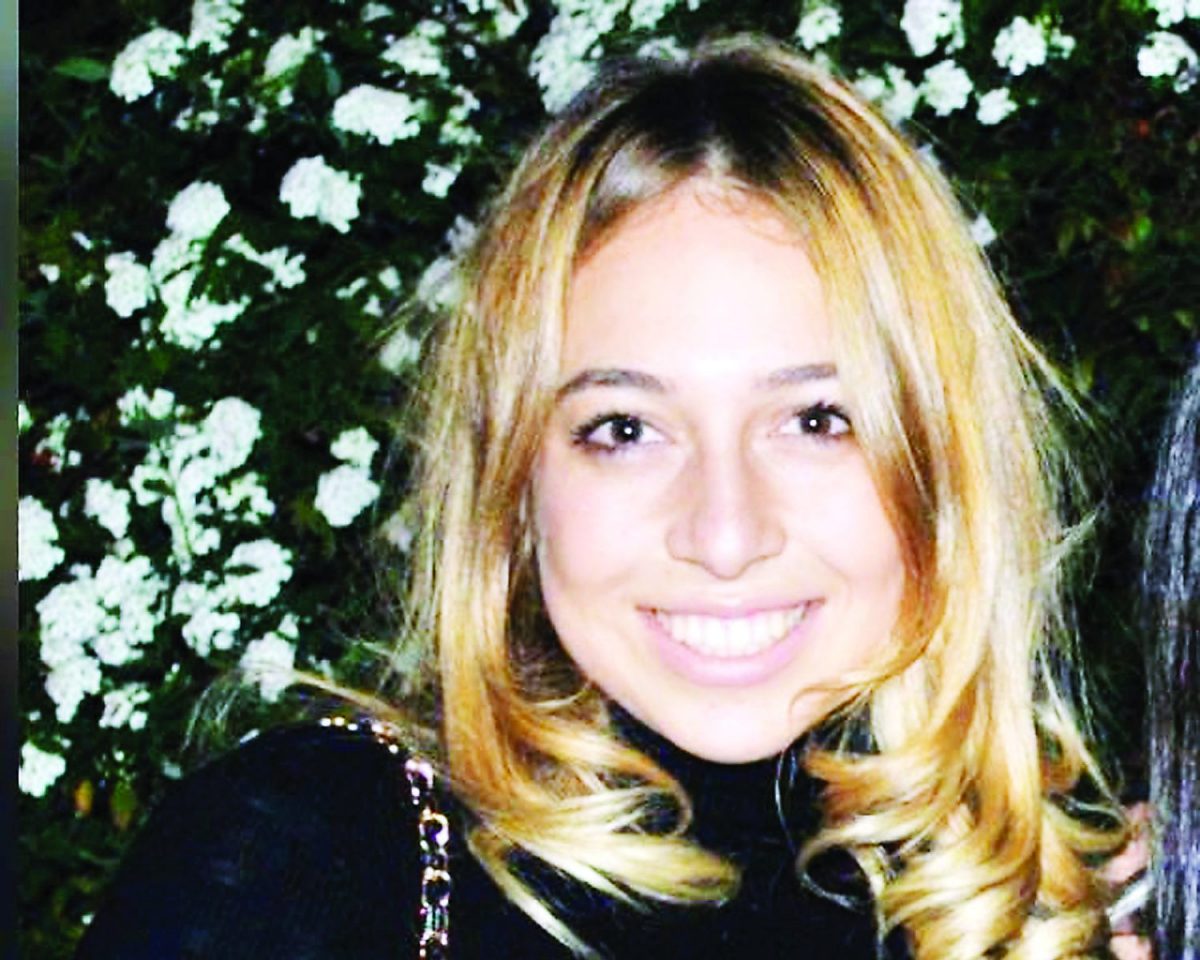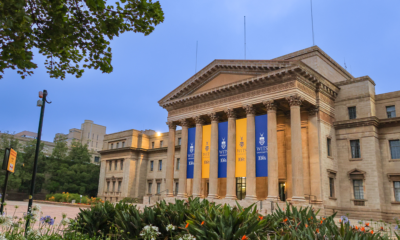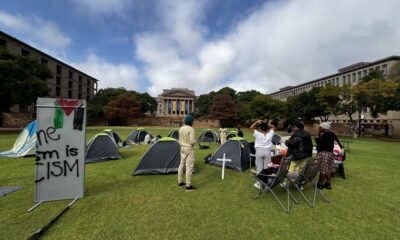
Featured Item

Farber lands top SRC position at Wits
When student activist Gabi Farber heard that she had landed a position on the University of the Witwatersrand’s (Wits’) Student Representative Council (SRC) after elections last week, she thought she was dreaming.
Not only had she become the first Jewish student in more than two decades to take a position through the African National Congress (ANC)-aligned Progressive Youth Alliance (PYA) at Wits, she was also the second-most popular candidate amongst student voters.
“I’m still shocked by the fact that I got in,” Farber told the SA Jewish Report this week. “I doubted myself so often. It was an incredible moment to realise that after a long and often hostile journey, I’d made it. I have been given the chance to make a difference in the lives of all students on campus.”
Her success comes after a campaign that goes back months, entailing a tremendous amount of grit, determination, and no small amount of backlash. This was primarily because of Farber’s choice of party, one with a history of being aligned with the Boycott, Divestment, Sanctions (BDS) movement, in spite of initially being conceived as a progressive platform.
A proud Jew and Zionist, Farber’s identity didn’t sit too well with a few party figures.
“Because my Zionism is a key part of my religious identity, there were people who believed I was bringing a Zionist agenda into the party, and who opposed me running in the election,” she says. “Some people forced the issue to the forefront when it was never about Zionism.
“I got a lot of flak, and there were calls from some for me to step down.
“There were party members affiliated with the Zionist Christian Church [ZCC] who were never questioned or attacked, and I felt targeted,” she says. “It was hard to see how many people out there were trying to stop me, and it got very difficult.”
In spite of the pressure, Farber could count on support from within and beyond the Jewish community, with both her PYA comrades and the South African Jewish Board of Deputies (SAJBD) helping her to push against the hatred.
“I can’t deny my Zionism because it means I deny my Jewish identity,” says Farber. “If I stepped down it would be dangerous, as I would set a precedent for other Jews who want to get involved. I’ve always believed in justice for both sides of the conflict, and want to see both Israel and Palestine live in peace within their own states in their respective homelands.
“This was never about Zionism for me, it was about serving students.”
It was these students who evidently saw her commitment to their plight, given that they rallied and helped her to secure the second position on the SRC.
“I got involved to help others, and it’s because of the students who voted for me that I’m getting the opportunity to do so,” Farber says. “I’m still overwhelmed by appreciation for all those who supported me, on campus and beyond. The SAJBD, South African Union of Jewish Students (SAUJS), and students at Wits were there for me every single day. They stood up for me and gave me strength.
“They believed in me when I often didn’t believe in myself.”
Zev Krengel, the vice-president of the SAJBD, says Farber’s victory needs to be recognised for the accomplishment it truly is. “People don’t realise that these things don’t happen quickly or easily,” he says. “This was a long and difficult process.
“There was always a relationship that existed between the ANC and South African Jewry under apartheid,” he says. “Jews were involved in the fight, and it wasn’t until the 2000s that anti-Israel lobby groups hijacked the relationship. The country became obsessed with BDS, and almost forgot what had been. That’s what we’ve seen over the past 22 years.”
Farber’s success illustrates a vision of the ANC and South African Jewry finding one another again, Krengel says.
“Farber is a proud Jew, woman, and South African. She embraced the ANC, and it embraced her. To me, this was like lost partners finding each other after years apart. Gabi has allowed this to happen.
“There were detractors in the PYA who didn’t want to see that relationship return. They got very ugly, and to the credit of Gabi and her comrades, they stood shoulder to shoulder and fought the hatred in the interest of students.”
It’s shown by the fact that Farber took the second highest number of votes, Krengel says. “That shows that the average student at Wits is happy to see a white, Jewish, Zionist woman in leadership. This victory shows us that there remains a place for Jews in South Africa and at Wits if we just engage.”
Benji Shulman, the director of public policy at the South African Zionist Federation (SAZF), agrees.
“Something like this hasn’t happened at Wits for more than two decades,” he says. “It shows that Jewish students can be part of a university campus in any capacity – it’s also their university after all.
“Gabi’s hard work is a testament to her beliefs, and her victory marks a turning point on campus which allows for greater engagement of Jewish students.”
Kayla Ginsberg, a member of the SAUJS national executive, says Farber’s success paves the way for Jewish students to be involved in student politics.
“We repeatedly engaged with the PYA on the need for Jewish inclusivity, and for our views to be represented as students present on campus,” she says. “It has rightly realised that it needs to ensure that its students are represented and protected, and issues on our continent dealt with, before it devotes endless energy to a far-removed conflict that means little to it.
“Gabi has shown the PYA that Jewish students want to – and are capable of – contributing to student politics and life in a big way. This may seem minimal, but the practical ramifications are massive.
“Campus is finally a much safer space for Jewish Zionist students, and I’m incredibly proud that we have managed to create and foster that.”
Although Farber will be assigned her SRC position only on Friday, she is ready to effect change on campus
“Our job as the SRC is to support students and ensure they succeed,” she says. “I want to push to make sure that Wits becomes safe for women, that we support those struggling with mental health, and ensure the academic success of every student. We’re all responsible for one another on campus.
“I really hope that other Jews will follow my lead. As Jews, we need to see that we have an obligation to change society, and that change really starts on a university campus. There’s so much that needs to be done, and Jewish students need to realise that they are equipped to help.”










